On shaky ground
How climate change is making life more complex for rural farmers in Bolivia
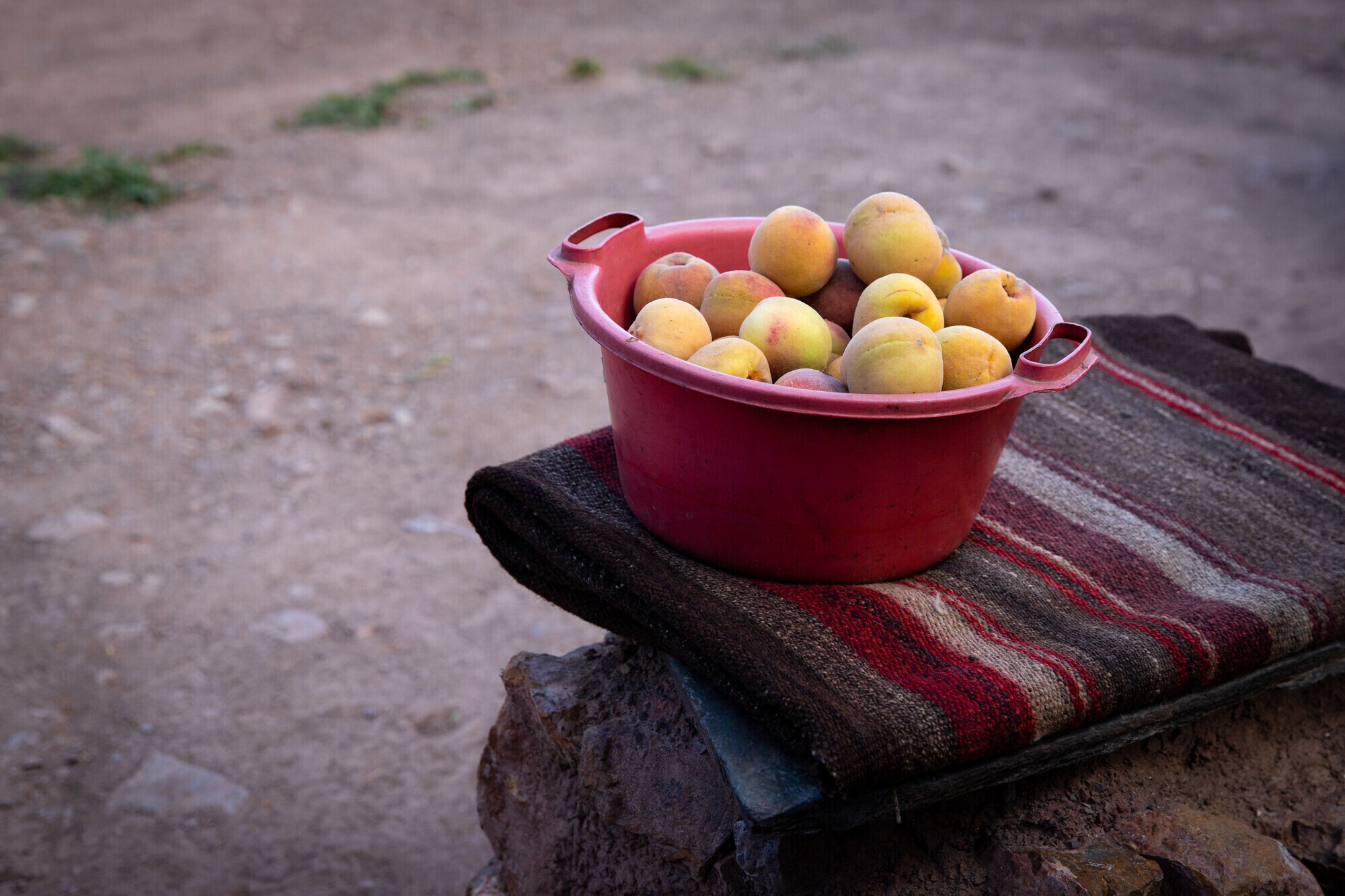
After our second visit of the day, we took a moment to sit, eat and chat more with members of the Chucarasi community in Norte de Potosí (North of Potosí), Bolivia. After we finished a full meal of freshly grown potatoes and vegetables, the red bowl brimming with peaches was a welcome, refreshing dessert. They were smaller than what I was used to, growing up near a peach region of Southern Ontario, Canada. But they were bright, bursting with flavor and sweeter than any dessert I could have wanted.
A man from MCC partner Programa de Desarollo Integral Interdisciplinario’s (PRODII) noticed our gazing eyes, maybe even saw us sneak some extra peaches into our bags for later. He asked us if we wanted to take some for the road. It had been a long day of traveling to remote communities around Potosí to learn about how farmers are adapting to a changing climate. We still had one more place to visit, so we all quickly nodded in agreement.
With a cheeky smile, he took the bowl and carefully placed each peach in his bag one by one. I kept thinking, “surely that’s enough peaches for all of us,” until each peach from the bowl was piled together in his bag, bursting at the seams. And with that, we packed into PRODII’s truck and continued to visit the next community of Kisi Kisi.
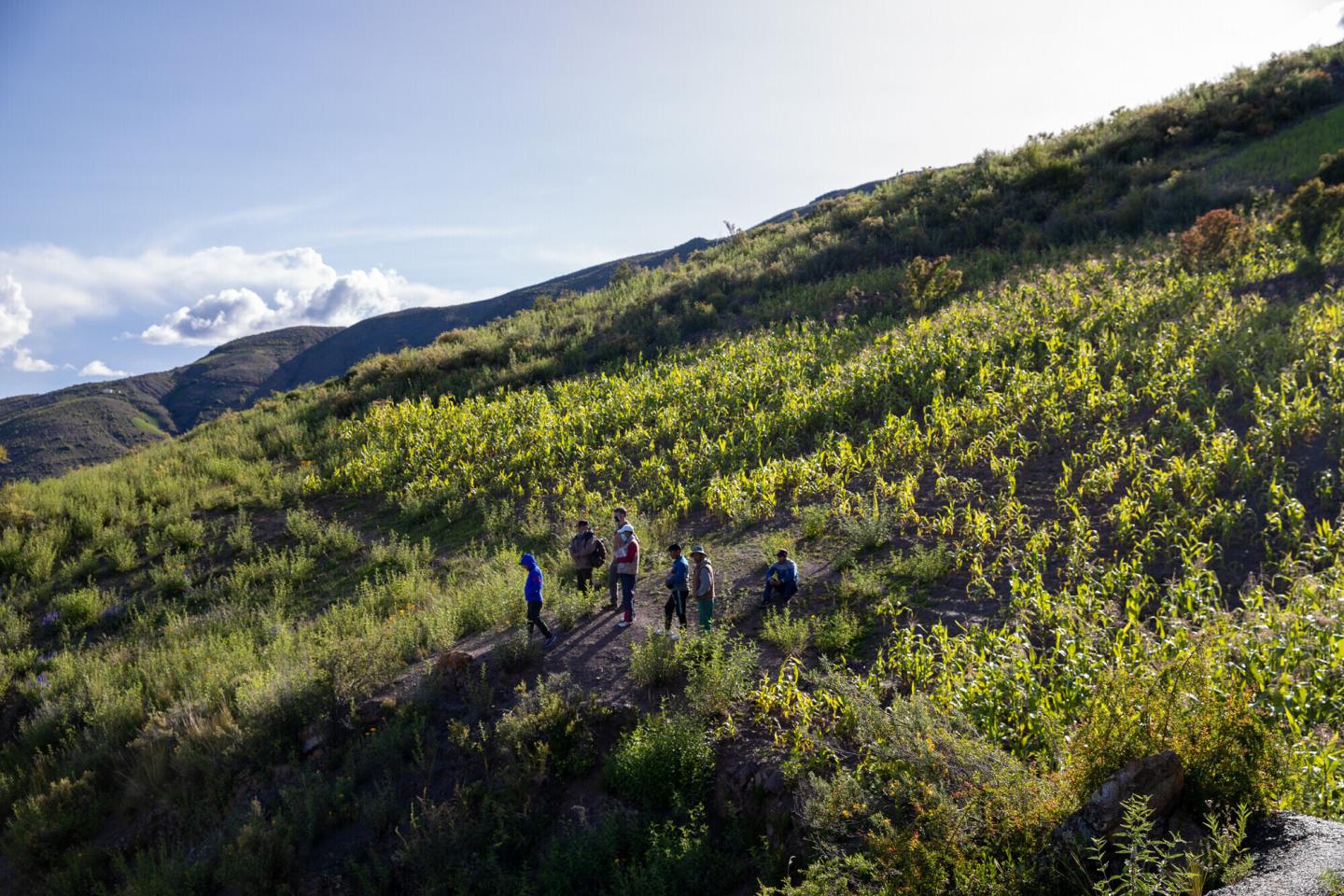
Taking a bag full of peaches didn’t make a dent for a community that has fruit trees on every corner at the peak of their harvest season. But they didn’t used to have this kind of abundance. Ten years ago, you couldn’t find peach or apple trees in these communities at all. In mountain climates like Norte de Potosí with an elevation of over 4,500 meters, farmers are usually limited in what they could grow to a few varieties of potatoes and other hearty vegetables.
This abundance of fresh fruit raised a complicated question for me. I believe we all carry internal biases. As a communicator, I often have narratives and story outlines thought out before I even talk to anyone. The story I had set out to write about was how climate change is negatively affecting remote farmers in Bolivia. But after visiting these communities, listening to their stories and delighting in many meals with fresh apple juice and peaches for dessert, I was confronted with a confusing question: was climate change actually helping these communities?
I was confronted with a confusing question: was climate change actually helping these communities?
Rachel Watson
Nicolás Yucra Gómez is from Kisi Kisi in Norte de Potosí. He’s been a beneficiary of PRODII’s program for years and is a leader in his community. He showed us his land and experimental plots, and proudly held up the biggest onions I had ever seen. When I asked him about how the climate has affected his work, he first explains, “Before, you couldn’t get peaches around here. But now with global warming, the weather has changed. Year after year the heat is increasing. Now we can have other products like citrus trees. Over there, we have oranges, grapes, figs and lemons. There is tangerine now, before we couldn’t grow that. The weather has changed and now we can plant citrus.”
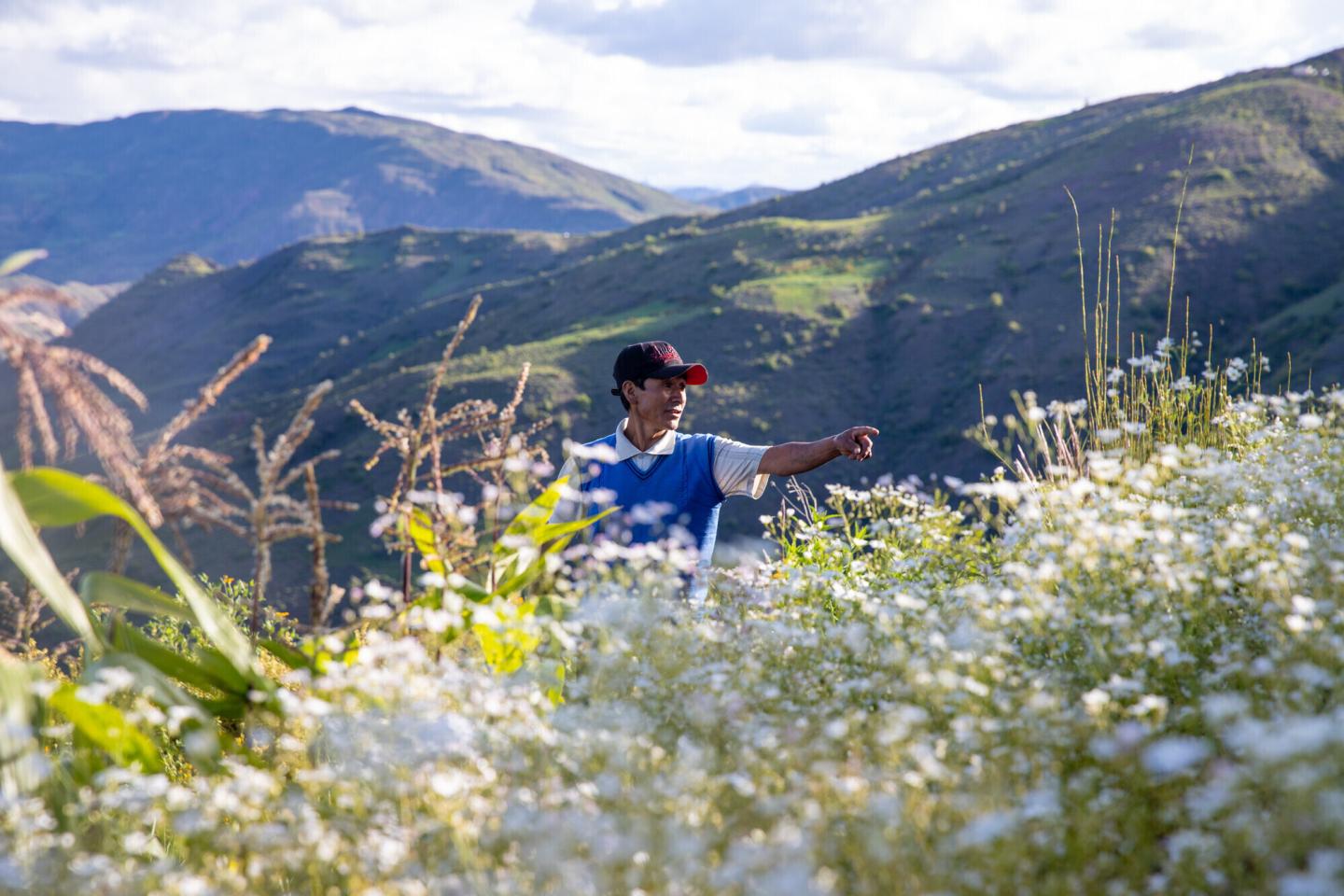
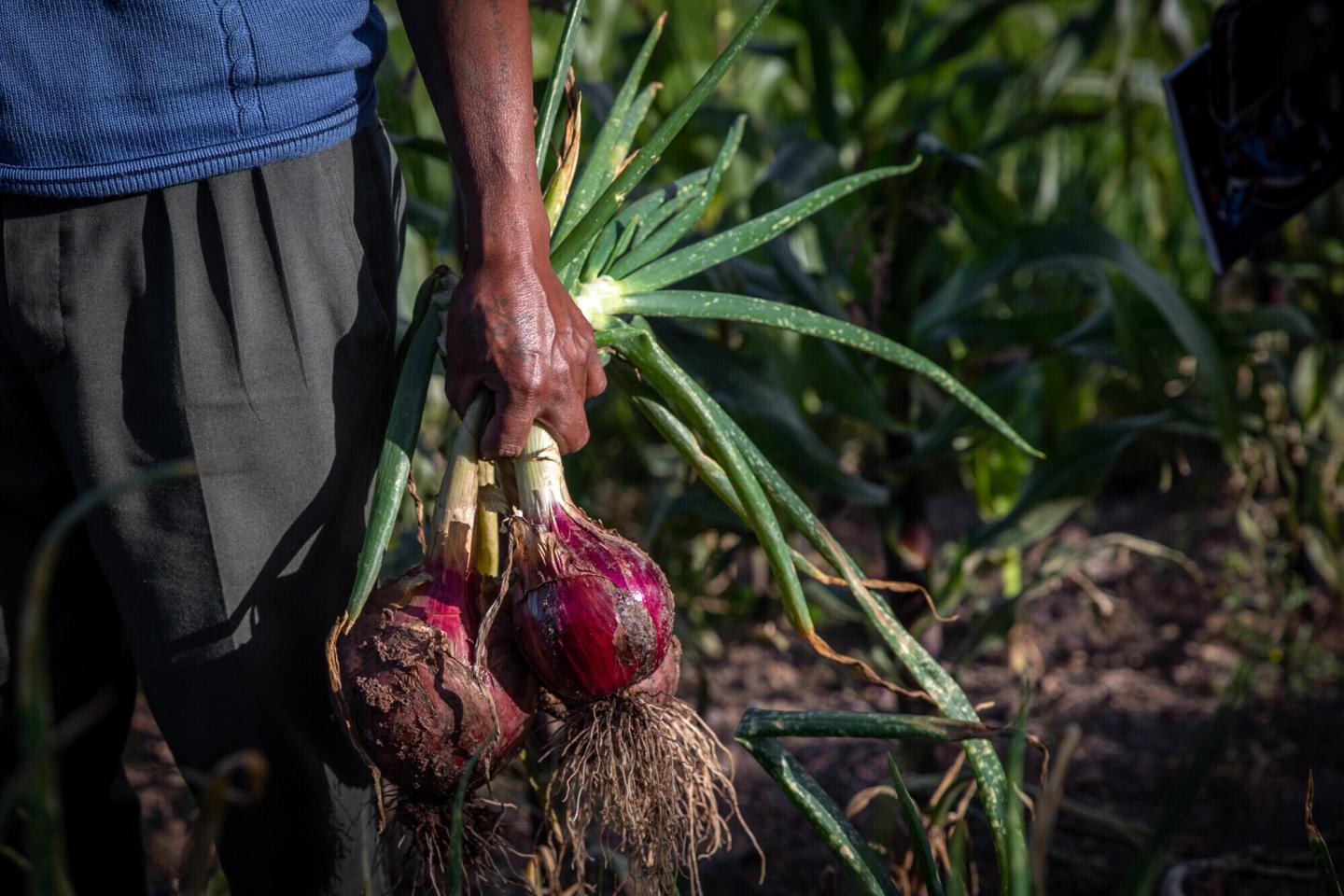
Luis Mamani from the community of San Pedro adds, “When I was a child, we couldn’t produce this new variety [of potato] we have now called wycha. We could only produce one variety. It seems like now it’s warmer and I can produce new varieties that we couldn’t have produced before.”
Luis and fellow farmers are taking advantage of the warmer climate to experiment with the recovery of native potato seeds from generations ago. From one potato, they are finding ways to transplant and multiply it into up to 17 new varieties of potato in many colours like black, blue, white and purple.
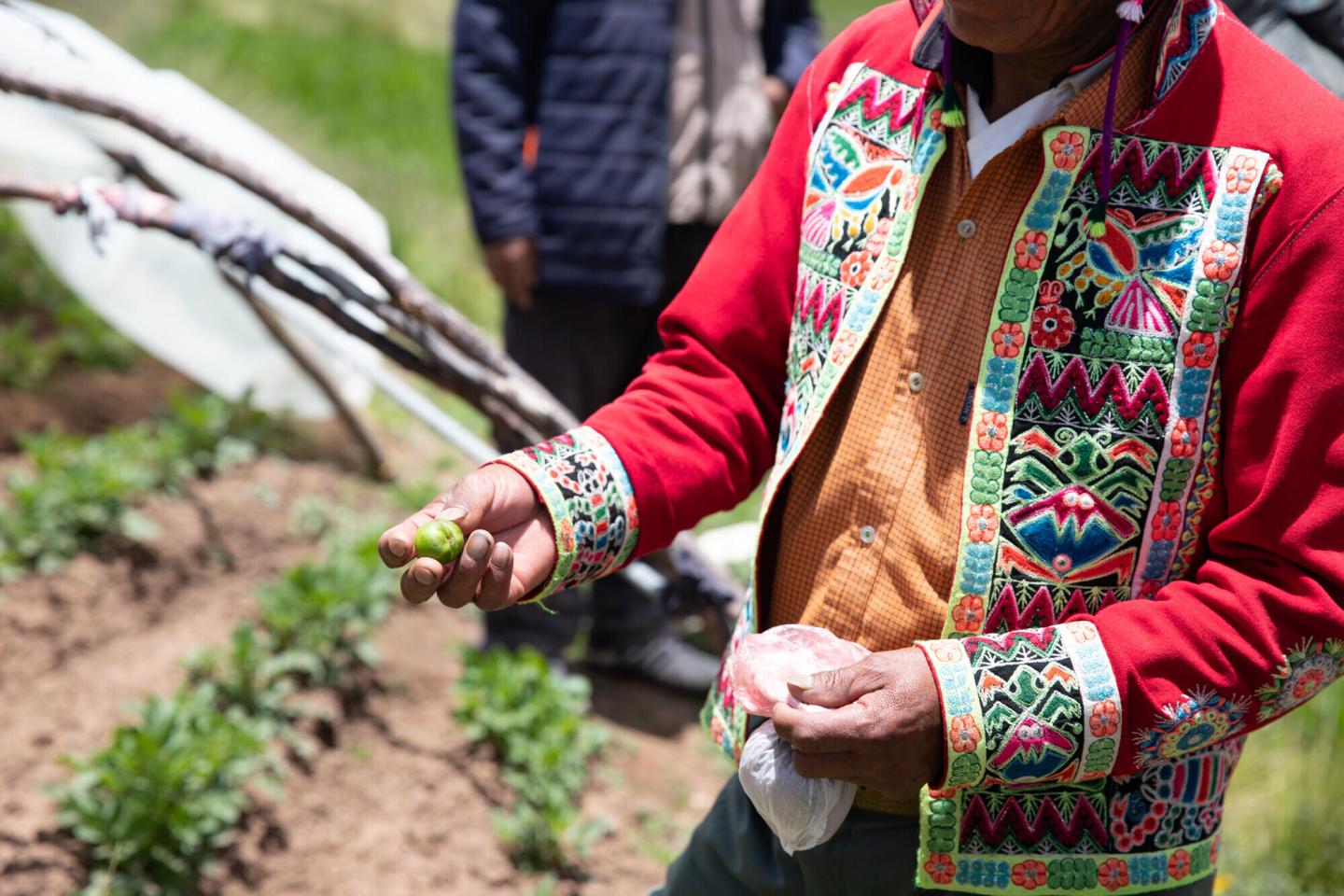
By rebirthing new and old varieties from long ago, these farmers are working towards food security for their families and communities. With more diversity in production, their children are no longer forced to migrate to the cities and can live healthier lives.
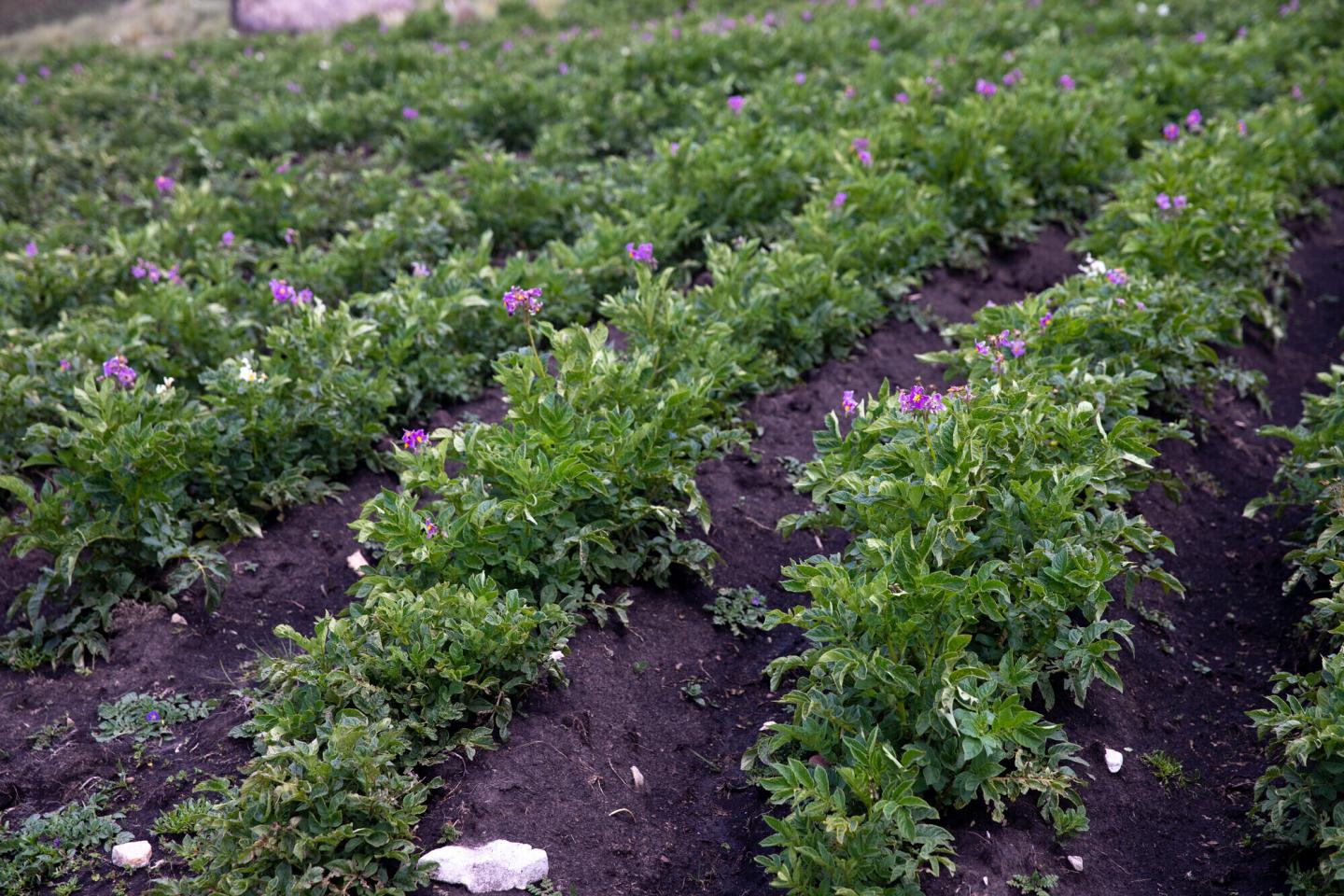
But talking solely of the abundance of new fruits and vegetables now available isn’t the full truth either. Climate change has brought complexity to everyone’s lives. And while there can be new and fruitful changes, it also brings an unpredictability that can be detrimental to their crops and livelihoods. These farmers walk on shaky ground. They work towards planting new citrus trees and developing new varieties of potato, but they tread lightly, never knowing when the ground will fall out from under them.
Gabriel Acarapi Chuca, a technician on PRODII’s team explains, “Rains used to be spread out during the season, maybe from September to January. But now, rains that should be spread across a longer period of time come all at once and it damages the crops. And we have hail now that falls in different intensities and at different times. The problem is that it’s not consistent, it’s very unpredictable. A nearby community has a lot of hail every year and it's very bad for our people.”
From one visit to another, we heard that the issue of water has been a major source of worry. It’s either too scarce or too much. There’s either drought or it comes down so hard that it wipes out entire crops overnight.
There’s either drought or it [the rain] comes down so hard that it wipes out entire crops overnight.
Gabriel Acarapi Chuca
PRODII technician
Richard Ignancio, a farmer in the La Yuri region of Norte de Potosí, says he experienced this devastation last year with his crop of potatoes. “So we've said it’s getting warmer, but there’s also hail. If the hail hits the potato plants—we could lose everything. Last year the frost took out the entire crop of potatoes.”
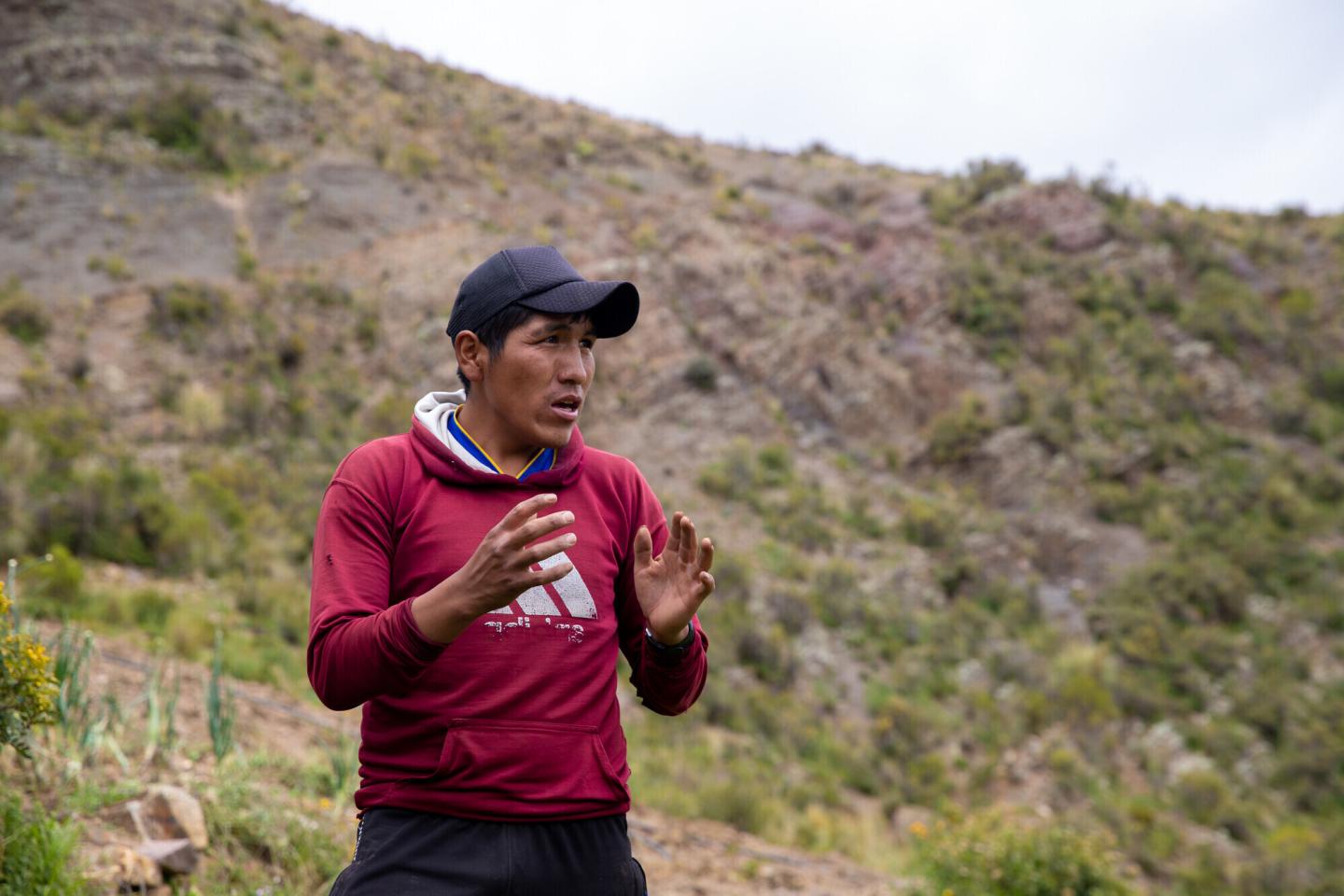
He continues, “And then there’s the rain too—it rains anytime, or it doesn’t rain, or sometimes there are droughts when it doesn’t rain at all. Sometimes it’s really dry—last year there was very little water. It’s changing a lot. And now this year it’s raining more.”
One of the ways PRODII is helping these farmers mitigate these effects is with the use of Manejo Integral de Cuencas (MIC or Comprehensive Watershed Management) systems. MIC systems collect water at every source; from the rain, the dew left on flower petals and from roots deep within the ground. Through gravitational force, this water flows down to a catchment system. They use this system to turn otherwise untapped water sources into usable and reliable options for these farmers. Gabriel explains, "The idea is to improve the amount of water that people can have. We’re working very hard on that in the different communities. We want these MICs to be examples, demonstrations for other communities."
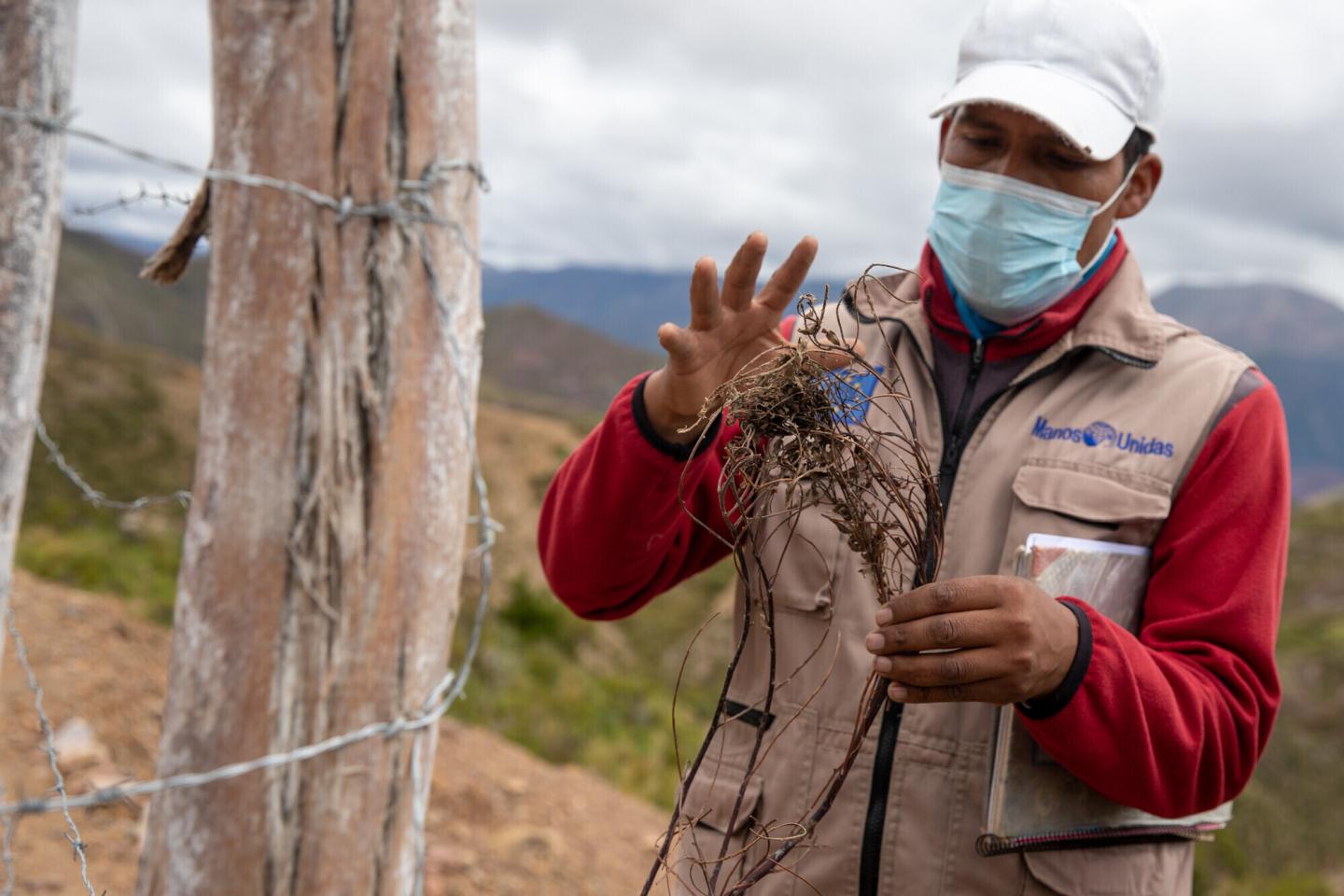
What I saw PRODII doing is adapting alongside vulnerable communities and working creatively to meet their expressed needs. For farmers experiencing drought, PRODII’s work looks like setting up MIC systems. For communities with hail, it looks like setting up tunnels as incubators to protect baby potato plants as they grow strong. And some days, it looks like sitting together enjoying the fruits of their labor during the harvest season.
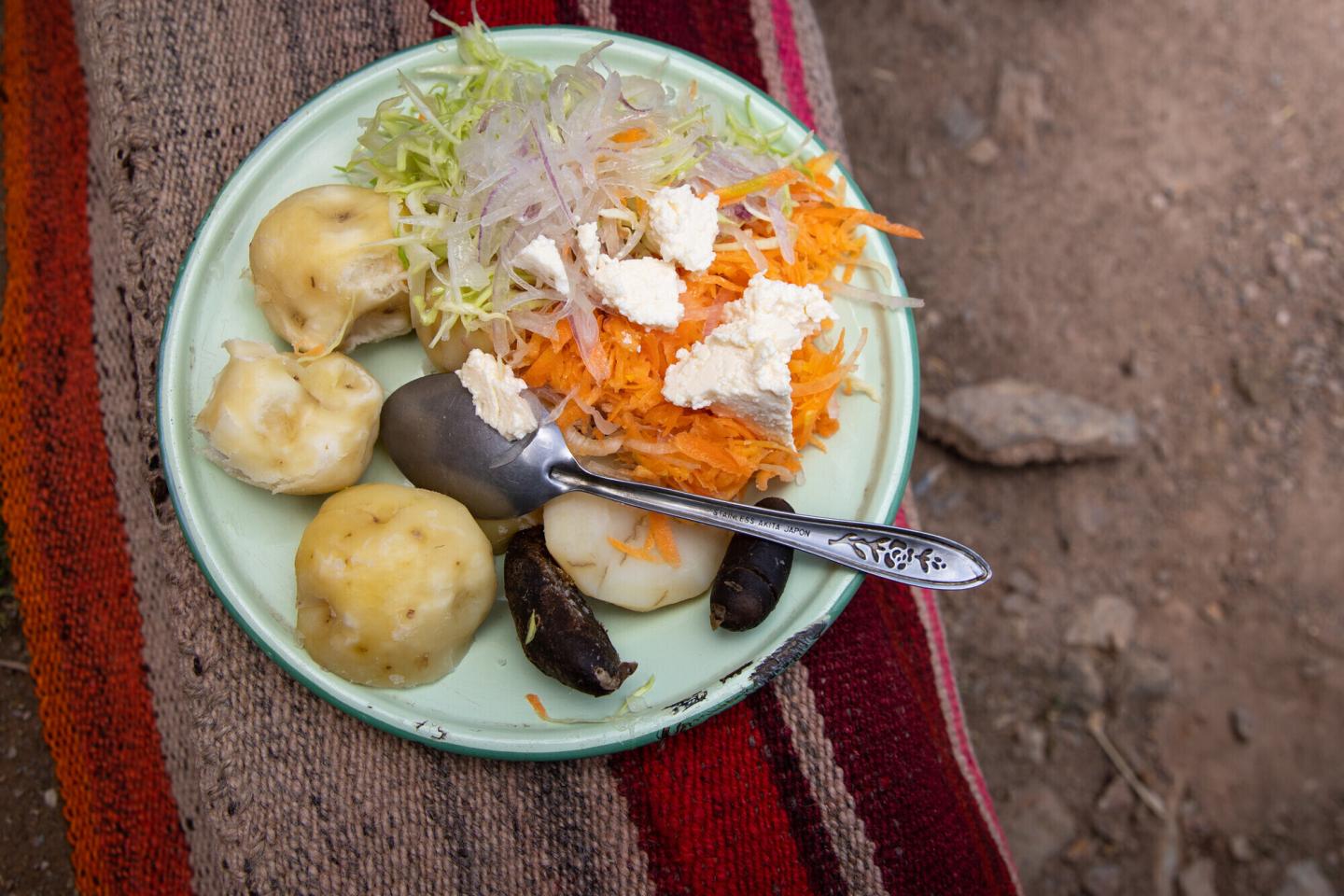
On our long drive home, I found a peach tucked away in the bottom of my bag. Delighting in that peach after a long day didn’t represent a denial of the harmful effects of climate change. We experience heartbreak for the communities that have overnight lost their food supply for the coming year. And, we celebrate their victories too, like the juicy peaches, growing with abundance enough to share.
—
MCC partner Programa de Desarollo Integral Interdisciplinario (PRODII) is dedicated to reducing the effects of climate change and guaranteeing food security for the most vulnerable Indigenous rural farmers. Their goal is to increase farming productivity, crop diversification and allow for more continuous agricultural activities throughout the year.
Top photo caption: Peaches served during a meal in the community of Chucarasi. MCC and PRODII staff visited communities while peaches were in season; they are often served as dessert or as part of drinks. One side effect of climate change is that fruit like peaches are now being grown at altitudes where it was previously impossible.

